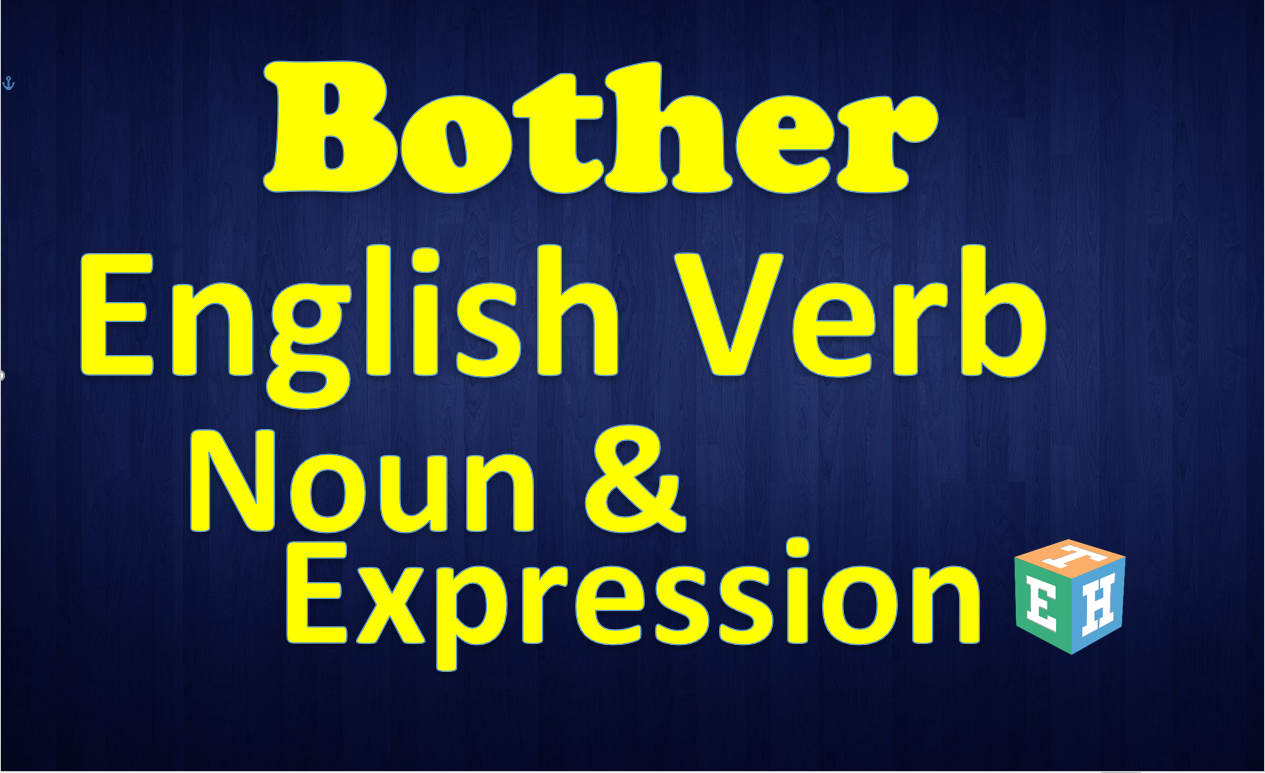BOTHER – English verb, noun and expression
In this complete tutorial for beginners’ learners are going to learn about the word “bother” its use as a verb and as a noun. And finally, a very common expression of the word “bother”.
bother /ˈbäT͟Hər/
Before we further proceed, watch the video here.
Let’s start with “bother” as a verb and the meaning is;
= to make an effort to do something
And when we use bother as a verb, we usually use the negative form; so the meaning is “to not make an effort to do something”.
So here is the form:
+ infinitive
bother
+ING form
So both of these are possible and the meaning is exactly the same.
For example:
John never bothers to clean his room.
John never bothers cleaning his room.
It was hot, so she didn’t bother to go out.
It was hot, so she didn’t bother going out.
“bother” as a verb – more examples
So, a quick reminder: Negative form means:
= to not make an effort to do something
+ infinitive
Bother
+ ING form
For example:
Don’t bother to call him. He’s busy.
Don’t bother calling him. He’s busy.
I’m not asking her because she won’t bother to answer.
I’m not asking her because she won’t bother answering.
Let’s look at the different meaning of “bother” as a “verb”. This is a completely different meaning, and the form is:
“bother someone” (transitive)
So we have the direct object, and it’s a transitive verb “bother someone” and the meaning is “a situation that makes someone feel worried or upset”.
Example:
Anna’s final exam bothers her.
And here we have the negative:
Not having a car doesn’t bother me.
We also have a third meaning of “bother” as a verb and his is even stronger, again the form is “bother someone” direct object so this is a (transitive).
And the meaning is “to annoy or cause problems for someone”.
For example:
I didn’t sleep last night because the mosquitos bothered me.
It bothered my father when my brother didn’t come home.
Now, let’s look at “bother as a noun” and the meaning is “trouble, problems or annoying”
For example:
Doing homework every day is a bother.
John: Could you help me print these documents?
Dan: Of course! That’s no bother.
And finally, very useful and common expression, particularly in British English, for they use this a lot. First of all, let’s form this expression.
We can form an adjective from the verb “bother”
bother – bothered
+ infinitive
Can’t be bothered
+ ING form
= too lazy or too tired of doing something
I can’t be bothered to mop the floor.
I can’t be bothered mopping the floor.
She can’t be bothered to do her project.
She can’t be bothered doing her project.
So, there we are, that’s the end of this lesson. I hope you learned something new today, visit englishtutorhub.com for a complete transcript of this tutorial and there are other lessons that you might interested in.
Don’t forget to like, share and send us an email if you have any queries regarding this lesson and I’ll reply you as soon as possible.
Downloadable Material
Here’s the downloadable material of Tutorial on bother English Verb Noun and Expression here.
For more readings
- TOO and ENOUGH | Use and Meaning in English
- The difference between “a little” and “little”
- The Difference between A FEW and FEW in English
- When to use “a little” and “a few”: English Grammar Rules
- Compound Words: English Vocabulary
- The difference between MUST and HAVE TO
If you have any questions or suggestions about bother English Verb Noun and Expression, please feel free to leave a comment below or send us a message using our contact page.


